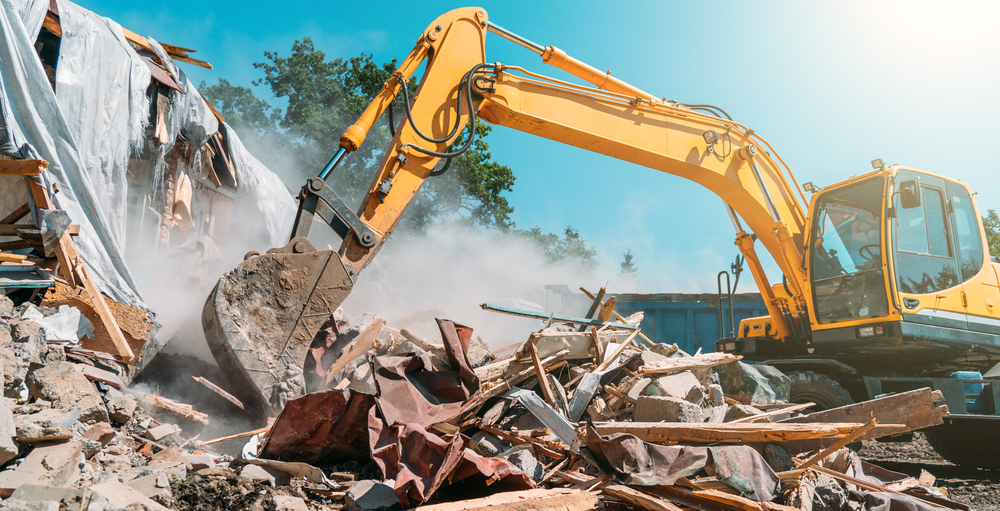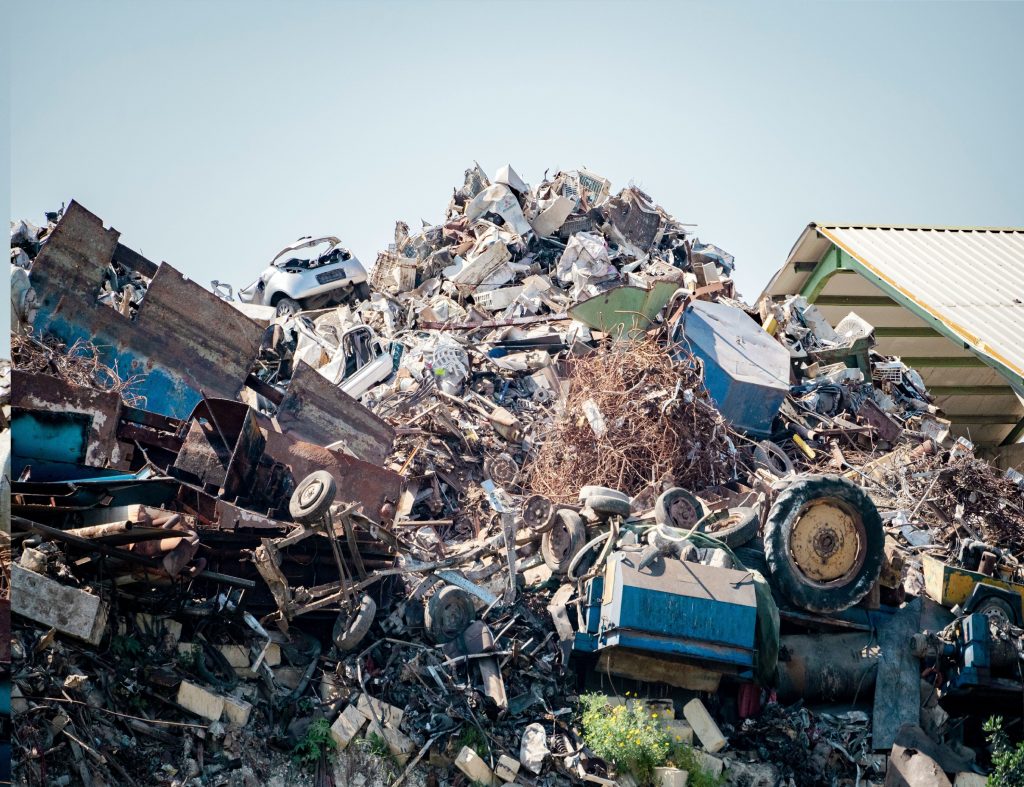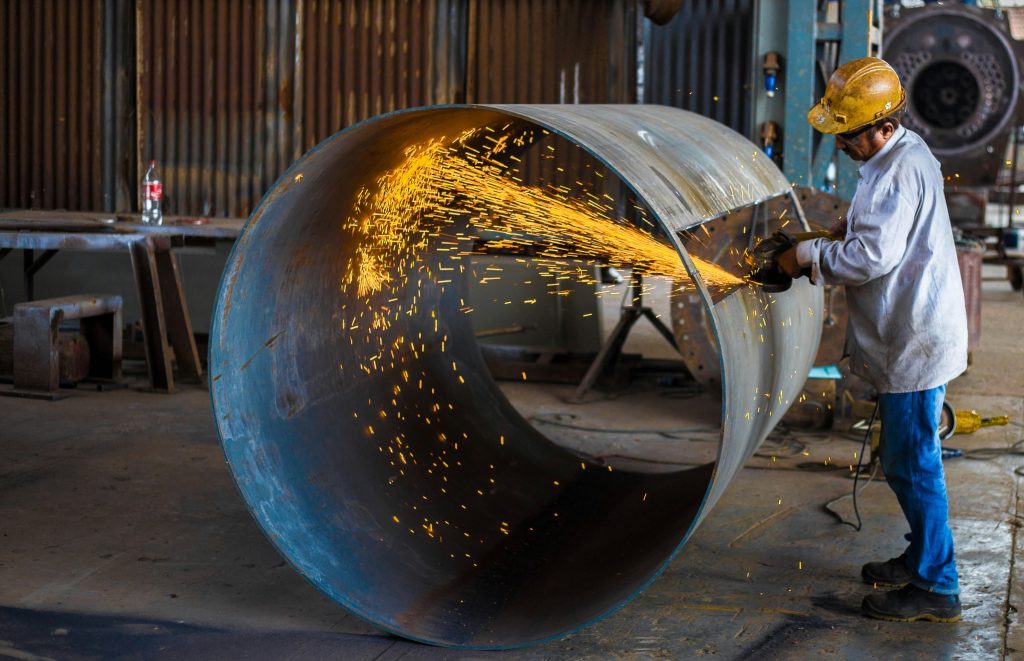Scrap Metal Pickup Perth | West Coast Metal
May 2, 2024Is Scrap Metal Recycling an Eco-Friendly Option in Perth?
May 30, 2024Recycle Scrap Metal | Tips, Tricks, and Eco-Friendly Solutions

Ready to turn your scrap into cash and do your part for the planet? West Coast Metal is here to show you the way!
Check out the ultimate guide to recycling scrap metal, where we’ll show you everything you need to know to start your recycling journey.
From disposing of scrap metal to getting paid for recycling, we’ve got you covered. So grab your gloves, and let’s dive into the world of metal recycling!
What Is Scrap Metal and Where Can You Find It?
Scrap metal is discarded metal materials that are no longer useful for their original purpose or beyond repair. These can range from household items such as electrical appliances and furniture to industrial byproducts such as excess metal from manufacturing processes or demolition debris.
The most popular scrap metal types are
- Ferrous metals: Steel and iron
- Non-ferrous metals: Copper, aluminum, brass, and bronze
Items that contain scrap metals include:
- Household appliances: Washing machines, dryers, refrigerators, stoves
- Vehicles: Cars, bikes, trucks, buses
- Electronics: Computers, laptops, tablets, smartphones
- Household items: Pots, pans, utensils, cutlery
- Construction materials: Beams, pipes
- Packaging: Aluminum cans, steel food containers, aluminum foil
- Wiring: Copper wires, electrical cables
- Industrial equipment: Machinery, tools, parts
Pros of Recycling Metal
Scrap metal recycling is a crucial component of the global metal industry. It allows the reuse and repurposing of valuable materials and reduces the need for raw metal extraction. Recycling also conserves natural resources and reduces energy consumption and greenhouse gas emissions.
Here is a detailed look at the advantages of recycling metal:
- Conserves Natural Resources: Recycling metal conserves valuable natural resources like iron ore, bauxite, and copper ore by reducing mining and extracting needs.
- Saves Energy and Water: Recycling metals requires less energy and water than producing new metals from raw materials.
- Reduces Landfill Waste: Metal objects made of steel and aluminum are durable and take centuries to decompose. Recycling diverts these materials from landfills, extending their useful life and reducing waste in garbage dumps.
- Adds Economic Benefits: Recycling metal contributes to the economy by creating jobs in the collection, sorting, processing, and manufacturing sectors. It also generates revenue through the sale of recycled metal materials.
- Minimizes Pollution: Making new metal releases pollutants, such as sulfur dioxide, nitrogen oxides, and heavy metals into the air. Metal recycling mitigates pollution and improves the environmental quality associated with metal extraction and processing.
- Promotes Circular Economy: Recycling metal is a fundamental aspect of the circular economy model, aiming to minimize waste and maximize resource efficiency,
The Process of Scrap Metal Recycling
Here is a comprehensive overview of the process of scrap metal recycling
Collection
The process begins with collecting scrap metal from various sources, such as scrapyards, construction sites, manufacturing facilities, demolition sites, and individual households. Scrap metal collectors gather materials, including old appliances, machinery, vehicles, structural beams, and other metal objects.
Sorting
The scrap metal, once collected, undergoes sorting and separation to categorize the different types of metal and remove contaminants. Magnetic separation breaks apart ferrous metals from non-ferrous metals. Metal recyclists also use density separation and manual sorting to further separate the metals.
Processing
The sorted scrap metal is cleaned and processed to remove dirt, rust, paint, or other surface contaminants. Large metal objects, such as vehicles and structural components, are shredded into smaller pieces to facilitate handling and processing.
Melting
The processed scrap metal is melted in furnaces at high temperatures to create molten metal. The scrap metal professional will use fluxing and slagging refining techniques to remove impurities and alloying elements. The purification process enhances the quality and consistency of the recycled metal.
Casting
Scrap metal professionals will cast the purified molten metal into molds or create ingots or bars, depending on the desired use. Casting methods can include:
- Continuous casting
- Sand casting
- Die casting
Distribution
The finished metal products are distributed to manufacturers, construction companies, wholesalers, and retailers for sale and use in various applications. Depending on demand and market conditions, you can sell recycled metal material domestically or internationally.
Where Can You Recycle Metal?
You have several options to recycle metal in Perth, including the following:
Places to Recycle Metal | Description |
Scrap metal yards | Perth has numerous scrap metal yards and recycling centers where you can drop off your metal recyclables. These facilities usually pay for certain metals based on current market prices. |
Local council recycling centers | Many local councils in Perth operate recycling centers that accept scrap metal. Some councils also offer curbside collection services for metal items as part of their waste management programs. |
Commercial recycling services | Recycling companies provide services to businesses, industries, and construction sites. They offer pickup and disposal services for large quantities of scrap metal, including industrial machinery and equipment. They may also provide on-site processing and recycling solutions. |
Community recycling events | Community groups, environmental organizations, and local businesses organize events or drives where residents can drop off scrap metal for recycling. |
Where Is Recycled Metal Used?
Recycled metal finds its way into many industries and applications, contributing to various products and infrastructure. Here are some key sectors where recycled metal is prevalent:
Construction: Recycled metal is a fundamental component in the construction industry, used to manufacture structural elements, reinforcing bars (rebar), beams, pipes, and roofing materials. Steel and aluminum are popular choices due to their strength, durability, and corrosion resistance. Using recycled metal in construction helps reduce the environmental impact of building projects and supports sustainable construction practices.
Automotive: The automotive industry relies heavily on recycled metal for manufacturing vehicles and components. Steel and aluminum are essential materials in car bodies, engines, chassis, and interior and exterior parts. Recycling scrap metal from end-of-life vehicles helps meet the demand for raw materials in automotive production while reducing energy consumption and greenhouse gas emissions.
Packaging: The packaging industry uses recycled metal to produce cans, containers, foil, and other packaging materials. Aluminum is highly sought after for its lightweight properties, making it an ideal choice for beverage cans and food packaging. Recycling aluminum cans saves energy and resources compared to producing new cans, making it a sustainable option.
Electronics: Many electronic devices contain metal components that can be recycled, including steel, aluminum, copper, and precious metals like gold and silver. Recycled metal is used to manufacture new electronic devices, appliances, and electrical wiring, as well as to produce components for renewable energy technologies such as solar panels and wind turbines.
Infrastructure: Recycled metal builds and maintains infrastructure, including bridges, railways, highways, and public utilities. Steel and iron are commonly used in construction projects to create durable and long-lasting infrastructure components such as beams, columns, guardrails, and drainage systems.
Manufacturing: Various industries utilize recycled metal as raw material for producing machinery, equipment, tools, and consumer goods. Recycled metal is melted and processed into new products through casting, forging, machining, and fabrication processes.
Challenges in Recycling Metal
While recycling metal offers numerous benefits, it also presents several challenges that need to be addressed:
- Contamination: Contamination of scrap metal with non-metallic materials like plastic, rubber, glass, or hazardous substances can pose a significant challenge to recycling processes. Contaminants can degrade the quality of recycled metal and require costly and energy-intensive separation and purification methods.
- Sorting Complexity: Different metals, alloys, and metal-containing materials require specific sorting and separation techniques. The complexity of sorting various metal types can increase processing costs and reduce recycling efficiency.
- Transportation and Logistics: Transporting scrap metal from diverse sources to recycling facilities can be logistically challenging for bulky or heavy items. Efficient transportation logistics are essential to minimize costs and environmental impacts.
- Technological Limitations: Developing and implementing innovative recycling technologies that can handle diverse metal streams and improve process efficiency is crucial for overcoming technological barriers.
- Economic Factors: Fluctuations in metal prices, supply and demand dynamics, and market conditions can impact the viability of metal recycling operations. Economic factors such as labor costs, energy prices, and regulatory compliance expenses also influence the profitability of recycling businesses.
- Policy and Regulation: Harmonizing regulatory frameworks and promoting local, national, and international policy coherence is essential to facilitate efficient and sustainable metal recycling practices.
- Consumer Behavior: Lack of awareness, indifference, or inconvenience may discourage individuals and businesses from participating in metal recycling programs.
- Illegal Scrap Trade: Illicit activities such as theft, illegal exportation, and smuggling of scrap metal pose security and regulatory risks to the recycling industry. Strengthening enforcement mechanisms, implementing traceability measures, and promoting transparency in the scrap metal supply chain are necessary to combat illegal scrap trade.
Recycle Metal in Perth with West Coast Metal
Make recycling scrap metal super easy! With West Coast Metal, you’re not just disposing of scrap metal, you are contributing to a cleaner, greener future.
Our convenient drop-off locations, efficient collection services, and commitment to sustainability make it simple to participate in metal recycling efforts.
By choosing West Coast Metal, you’re not only doing your part to conserve resources and reduce waste but also supporting a local female-run business dedicated to environmental stewardship.
Join us in shaping a brighter tomorrow by recycling your metal with West Coast Metal today!


